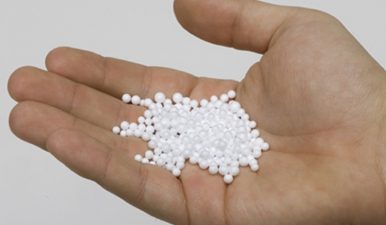 Scientist Harold Vinegar says there is a huge quantity of oil shale in Israel and, despite protests and risks, he still wants to extract it
Scientist Harold Vinegar says there is a huge quantity of oil shale in Israel and, despite protests and risks, he still wants to extract it
A project to explore the Elah Valley of Israel (pictured above) for oil shale has been underway since 2008 and despite protests from locals and environmental campaigners, those behind the project state that they are optimistic and will continue to work towards extracting the oil shale.
In an extensive interview with the Jerusalem Post, ex-Shell scientist Harold Vinegar who is part of the Israel Energy Initiatives (IEI) behind the oil shale venture, insists that Israel has the potential to extract “250 billion barrels of oil and perhaps more” using cleaner and cheaper techniques.
Cleaner and Cheaper Method of Oil Shale Extraction?
Harold Vinegar, 63, who was chief scientist at Royal Dutch Shell until 2008 explains that he has helped develop a cleaner method of extracting oil shale that is less polluting. This method consists of extracting the oil shale using heat rather than huge quantities of water and chemical which is involved in ‘fracking’. The company hopes to start a pilot by the end of the year to demonstrate that Vinegar’s heating method works and has ‘no negative effects on the environment’. The article adds that the ‘process is not supposed to release any poisonous gases, and the oil produced will be very easy to refine.’
Unknown Risks and Environmental Protests
Local residents, however, insists that the IEI’s technology is unproven and involves various environmental risks- some known and others unknown. Rachel Jacobson who is fighting the oil shale project spoke to Green Prophet back in April and said, “It’s hard to narrow down our list of concerns, there are so many unknowns! Among our largest is that this technique has never been implemented on the industrial scale being proposed here.
“Israel is an extremely small country, with a very small margin of error. In the United States, a site like the one being proposed here would have to be located about 50 km from the nearest town, while here, the nearest residential area is barely two kilometers away. Additional concerns for the immediate area include the potential risk of increased local air and ground (soil) pollution, increased noise and oil factory pollution, and other potential hazards.”
Threat to Shared Water Supplies
Concerns have also been raised over the fact that the site is near an underground water aquifer which is shared between Israel and Palestinians in the West Bank. Although the company has insisted that the risk of contamination is small, Mihkel Harm from the World Energy Council told the BBC that the process being proposing to extract the oil shale “is hard to control and might pose a risk for groundwater.”
Vinegar however insists that the issue and its dangers have been “blown up out of all proportion.” He also added that he remains very optimistic about the project and was sure that the pilot would succeed: “One of our jobs is to demonstrate that this venture caries no dangers, and we will do that in the pilot.”
:: Image via Save Adullum Facebook page.
For more on oil shale exploration in Israel see:
Israeli Black Globe Awards Went to IEI For Oil Shale Agenda
Oil & Wine Don’t Mix: Over 1,000 Israelis Protest Oil Shale In Adulum
Open Letter To David de Rothschild: Stop Your Family’s Oil Shale Exploration




You’re right. In fact, the JP interview with Vinegar says: “This project will consume large amounts of power, but, at the advanced production stage, natural gas will form at the production site, and the use of it to generate heat via molten salt will cut the cost of production and make the process more efficient.”
I think overall, oil shale is a bad idea. It’s energy intensive, its technologies are too new (risky?) and it is polluting. The issue over the water is also a seriously worrying one as the experts are saying one thing whilst the oil companies are saying another.
I have serious doubts about the ‘cleaner’ method. I’m not saying they can’t reduce water and water pollution–maybe they can. But the big problem with shale oil is that it is MUCH more energy intensive to produce, making it far worse for greenhouse gas emissions and global climate change than regular oil. I assume that heating will require large energy input, so it is very doubtful that this method will help resolve that issue.